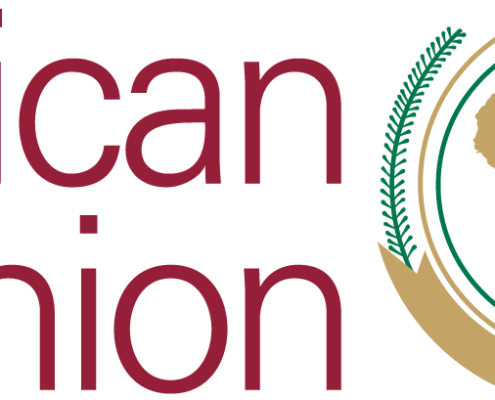The objectives of the AU are the following:-
- To achieve greater unity, cohesion and solidarity between the African countries and African nations.
- To defend the sovereignty, territorial integrityand independence of its Member States.
- To accelerate the political and social-economic integration of the continent.
- To promote and defend African common positions on issues of interest to the continent and its peoples.
- To encourage international cooperation, taking due account of the Charter of the United Nationsand the Universal Declaration of Human Rights.
- To promote peace, security, and stability on the continent.
- To promote democratic principles and institutions, popular participation and good governance.
- To promote and protect human and peoples’ rights in accordance with the African Charter on Human and Peoples’ Rightsand other relevant human rights instruments.
- To establish the necessary conditions which enable the continent to play its rightful role in the global economy and in international negotiations.
- To promote sustainable developmentat the economic, social and cultural levelsas well as the integration of African economies.
- To promote co-operation in all fields of human activity to raise the living standardsof African peoples.
- To coordinate and harmonise the policies between the existing and future Regional Economic Communitiesfor the gradual attainment of the objectives of the Union.
- To advance the development of the continent by promoting research in all fields, in particular in science and technology.
- To work with relevant international partners in the eradication of preventable diseases and the promotion of good health on the continent.
The African Union is made up of both political and administrative bodies. The highest decision-making organ is the Assembly of the African Union, made up of all the heads of state or government of member states of the AU. The Assembly is chaired by Cyril Ramaphosa, President of South Africa. The AU also has a representative body, the Pan African Parliament, which consists of 265 members elected by the national legislatures of the AU member states. Its president is Roger Nkodo Dang.
Other political institutions of the AU include:
the Executive Council, made up of foreign ministers, which prepares decisions for the Assembly;
the Permanent Representatives Committee, made up of the ambassadors to Addis Ababa of AU member states; and
the Economic, Social, and Cultural Council (ECOSOCC), a civil society consultative body.
The AU Commission, the secretariat to the political structures, is chaired by Nkosazana Dlamini-Zuma of South Africa. On 15 July 2012, Ms. Dlamini-Zuma won a tightly contested vote to become the first female head of the African Union Commission, replacing Jean Ping of Gabon.
Other AU structures are hosted by different member states:
the African Commission on Human and Peoples’ Rights is based in Banjul, the Gambia; and
the New Partnership for Africa’s Development (NEPAD) and APRM Secretariats and the Pan-African Parliament are in Midrand, South Africa.
The AU’s first military intervention in a member state was the May 2003 deployment of a peacekeeping force of soldiers from South Africa, Ethiopia, and Mozambique to Burundi to oversee the implementation of the various agreements. AU troops were also deployed in Sudan for peacekeeping during the Darfur conflict, before the mission was handed over to the United Nations on 1 January 2008 UNAMID. The AU has also sent a peacekeeping mission to Somalia, consisting of troops from Uganda and Burundi. The AU has adopted a number of important new documents establishing norms at continental level, to supplement those already in force when it was created. These include the African Union Convention on Preventing and Combating Corruption (2003), the African Charter on Democracy, Elections and Governance (2007), the New Partnership for Africa’s Development (NEPAD) and its associated Declaration on Democracy, Political, Economic and Corporate Governance.

